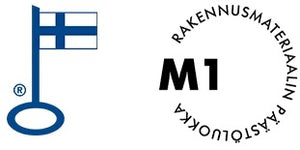Cariitti offers a wide range of lighting solutions that support your comfort and well-being, whether you’re looking for relaxing lighting for your sauna or an atmospheric starry sky for your living room. Contact Cariitti!
Lighting has a major impact on our well-being
Light affects many things in us people, such as hormonal system, growth, sleep and mood. The link between light and our body is something that should not be ignored. With high-quality lighting that supports our needs and circadian rhythm, we can make a significant contribution to our own well-being.
It all started from fire

Fire is the first form of artificial lighting. Already for the ancient man has it given light and warmth and brought security to the night against beasts. Although the possibilities of artificial lighting have expanded over time, we are not tired of looking at fire. According to the study, staring at fire quickly lowers a person’s blood pressure by about 5%. The fascination with looking at fire seems to be based, at least in part, on its stress-lowering effect.
Over time, man noticed that resinous trees shine brightest in the fireplace. As a result, the first portable lamp in history was born; all it took were co-tied wooden sticks and resin applied to their heads. In this way, a torch was created, in which the wooden sticks acted only as a handle.
Prehistoric people developed their primitive, grease-filled lamps to illuminate their caves from materials available at that time, such as shells and stones. Such lamp discoveries have been made, for example, in the caves of Lascaux, France, and the objects have been concluded to be some 17 000 years old.
The history of artificial light has gone a long way from fireplaces to oil lamp light, gas lights and light bulbs towards the possibilities of LED lighting. The invention of artificial light has had a transforming effect, especially on the circadian rhythm of man; it has made it possible to carry out daily chores even after the sunset.
Well-being with human-centered lighting design
Before inventing artificial light, man has lived in the rhythm of natural daylight, with day-night alternation acting as a natural time sign. The morning sun has activated us, while the dark has invited us to rest. Although we live today surrounded by artificial lights, we are still the same biological being whose psychic state and many vital functions are rhythmed by natural light. Light affects many things in us, such as growth, sleep, metabolism, mood, alertness and hormonal system. The connection between light and our body’s internal clocks is a significant factor affecting our well-being, which should be taken into account when designing lighting.

The more time we spend indoors, the more important the qualities of artificial light become. In so-called human centric lighting, both the color spectrum and the timing and intensity of light have been adjusted to support our circadian rhythm, taking into account the connection between light and our body’s internal clocks. Light reduces the secretion of melatonin, or sleep-promoting hormone, in the body, which is why it is good to reduce bright and cold lighting every time you go to bed. In particular, the bluish light on the computer or mobile device screen has been found to reduce melatonin secretion. In the mornings, on the other hand, we need more bright light to bring our alertness to the necessary level for the day’s chores.
Light sources with good coloring and possibilities for the color temperature control make the space versatile and pleasant. The quality of lighting has a key impact on how we see the colors around us and how we perceive the atmosphere of the space. After all, each of us knows how uncomfortable it is to stay in, say, dazzling or vibrating lighting.

There are a huge number of possibilities in lighting control today. The color and intensity of lighting can be conveniently managed, for example, through a mobile device. Sensors, detectors and timers connected to lighting automations also contribute to energy consumption savings when lighting is used wisely and according to current needs.




